
Filter News
Area of Research
News Topics
- (-) High-Performance Computing (33)
- (-) Materials (59)
- 3-D Printing/Advanced Manufacturing (20)
- Advanced Reactors (3)
- Artificial Intelligence (26)
- Big Data (10)
- Bioenergy (22)
- Biology (29)
- Biomedical (7)
- Biotechnology (6)
- Buildings (14)
- Chemical Sciences (24)
- Clean Water (5)
- Climate Change (31)
- Composites (6)
- Computer Science (23)
- Coronavirus (4)
- Critical Materials (6)
- Cybersecurity (9)
- Decarbonization (30)
- Education (3)
- Emergency (1)
- Energy Storage (21)
- Environment (43)
- Exascale Computing (15)
- Fossil Energy (2)
- Frontier (19)
- Fusion (9)
- Grid (16)
- Hydropower (3)
- Irradiation (2)
- Isotopes (11)
- Machine Learning (15)
- Materials Science (16)
- Mathematics (2)
- Mercury (2)
- Microelectronics (2)
- Microscopy (7)
- Molten Salt (1)
- Nanotechnology (7)
- National Security (21)
- Net Zero (5)
- Neutron Science (32)
- Nuclear Energy (21)
- Partnerships (24)
- Physics (14)
- Polymers (4)
- Quantum Computing (12)
- Quantum Science (9)
- Renewable Energy (2)
- Security (3)
- Simulation (29)
- Software (1)
- Space Exploration (4)
- Summit (9)
- Sustainable Energy (17)
- Transportation (18)
Media Contacts
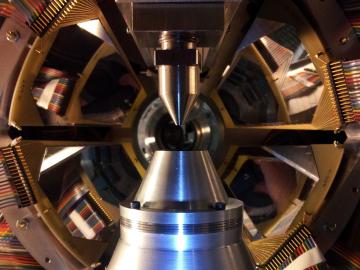
Led by Kelly Chipps of ORNL, scientists working in the lab have produced a signature nuclear reaction that occurs on the surface of a neutron star gobbling mass from a companion star. Their achievement improves understanding of stellar processes generating diverse nuclear isotopes.
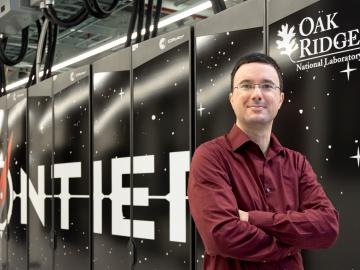
As renewable sources of energy such as wind and sun power are being increasingly added to the country’s electrical grid, old-fashioned nuclear energy is also being primed for a resurgence.
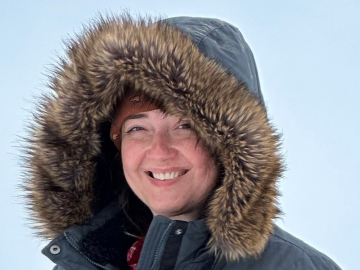
Colleen Iversen, ecosystem ecologist, group leader and distinguished staff scientist, has been named director of the Next-Generation Ecosystem Experiments Arctic, or NGEE Arctic, a multi-institutional project studying permafrost thaw and other climate-related processes in Alaska.
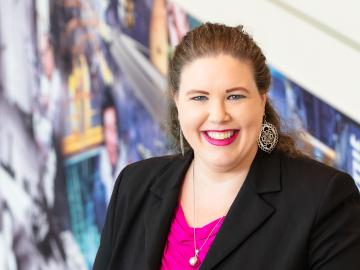
Anne Campbell, an R&D associate at ORNL, has been selected for an Emerging Professional award from ASTM International. ASTM, formerly the American Society for Testing and Materials, is an international standards organization that develops and publishes voluntary consensus technical standards for a wide range of materials, products, systems and services.
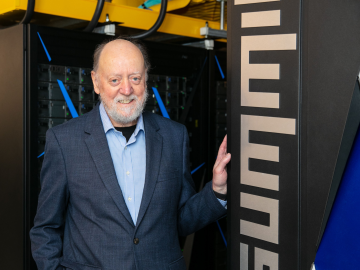
Computing pioneer Jack Dongarra has been elected to the National Academy of Sciences in recognition of his distinguished and continuing achievements in original research.
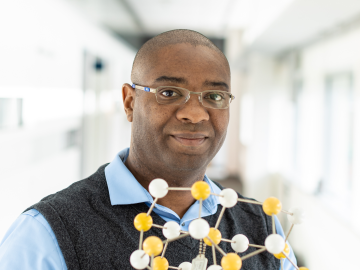
Valentino “Tino” Cooper, a scientist at ORNL, has been appointed to DOE’s Basic Energy Sciences Advisory Committee for a three-year term. Cooper’s research elucidates the fundamental understanding of advanced materials for next-generation energy and information technologies.
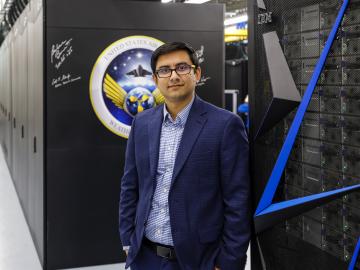
Climate change often comes down to how it affects water, whether it’s for drinking, electricity generation, or how flooding affects people and infrastructure. To better understand these impacts, ORNL water resources engineer Sudershan Gangrade is integrating knowledge ranging from large-scale climate projections to local meteorology and hydrology and using high-performance computing to create a holistic view of the future.
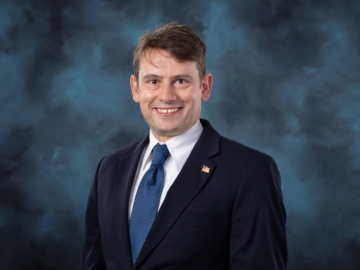
Andrew Lupini, a scientist and inventor at ORNL, has been elected Fellow of the Microscopy Society of America.
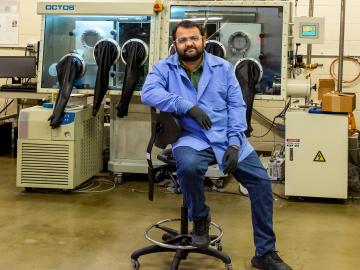
Marm Dixit, a Weinberg Distinguished Staff Fellow at ORNL has received the 2023 Rosalind Franklin Young Investigator Award.

Using disinformation to create political instability and battlefield confusion dates back millennia. However, today’s disinformation actors use social media to amplify disinformation that users knowingly or, more often, unknowingly perpetuate. Such disinformation spreads quickly, threatening public health and safety. Indeed, the COVID-19 pandemic and recent global elections have given the world a front-row seat to this form of modern warfare.


